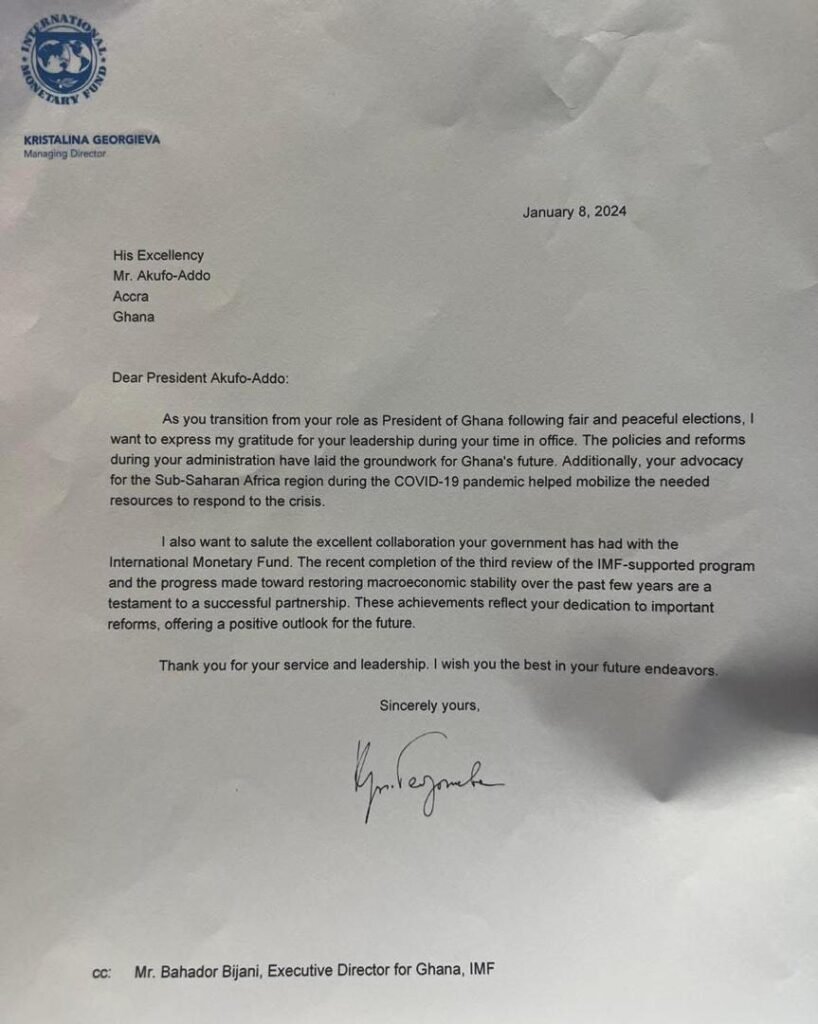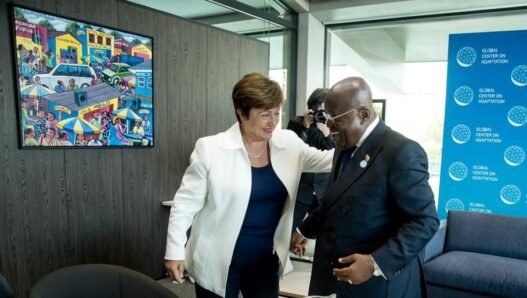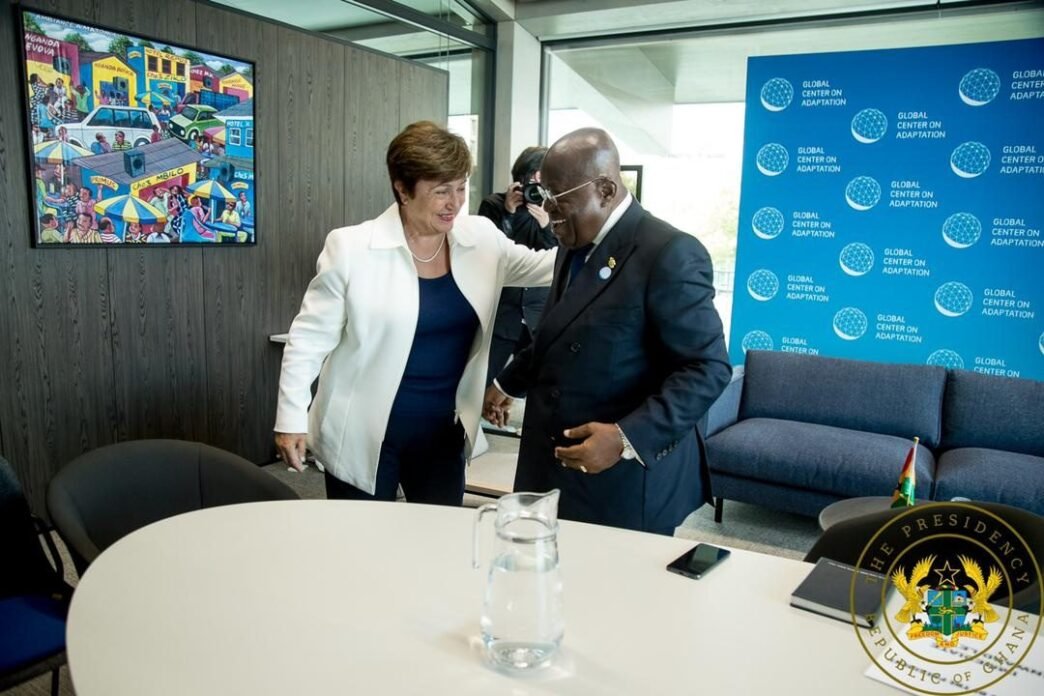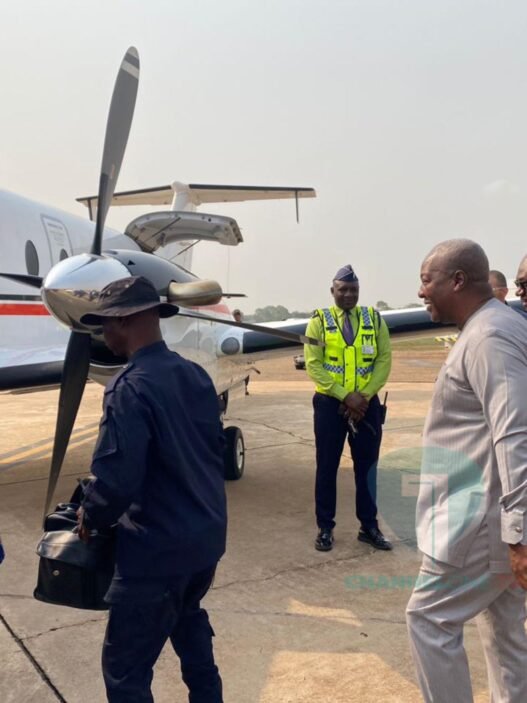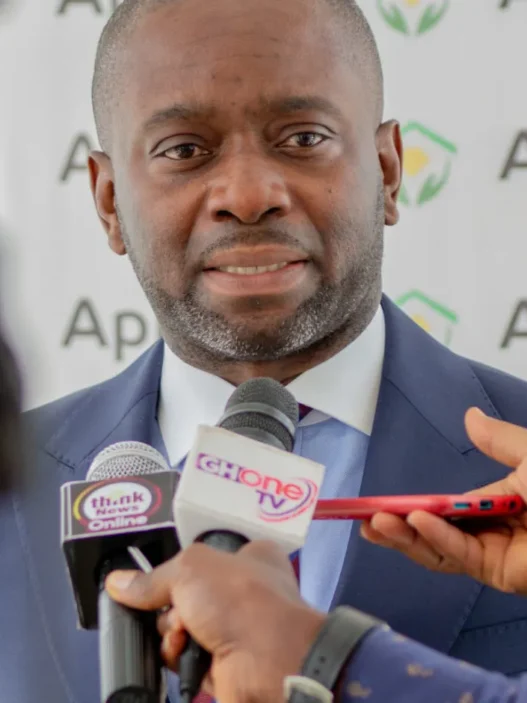In a letter dated January 8, 2024, International Monetary Fund (IMF) Managing Director Kristalina Georgieva expressed her gratitude to President Nana Addo Dankwa Akufo-Addo for his leadership during his tenure as the President of Ghana. In her message, Georgieva commended Akufo-Addo for his policies and reforms, which she claimed had set a solid foundation for the country’s future.
Recognizing Key Achievements and Partnerships
Georgieva’s letter emphasized the positive impact of Akufo-Addo’s administration on Ghana’s economic stability, particularly highlighting the successful collaboration between the Ghanaian government and the IMF. She noted the recent completion of the third review of the IMF-supported program, which she described as a significant step toward restoring macroeconomic stability in the country.
The IMF Managing Director also acknowledged Akufo-Addo’s advocacy for Sub-Saharan Africa during the COVID-19 pandemic, specifically in mobilizing the resources necessary to address the crisis. Georgieva described the outcome of these efforts as a testament to Akufo-Addo’s dedication to reforms that have, in the IMF’s view, positively impacted Ghana’s economy.
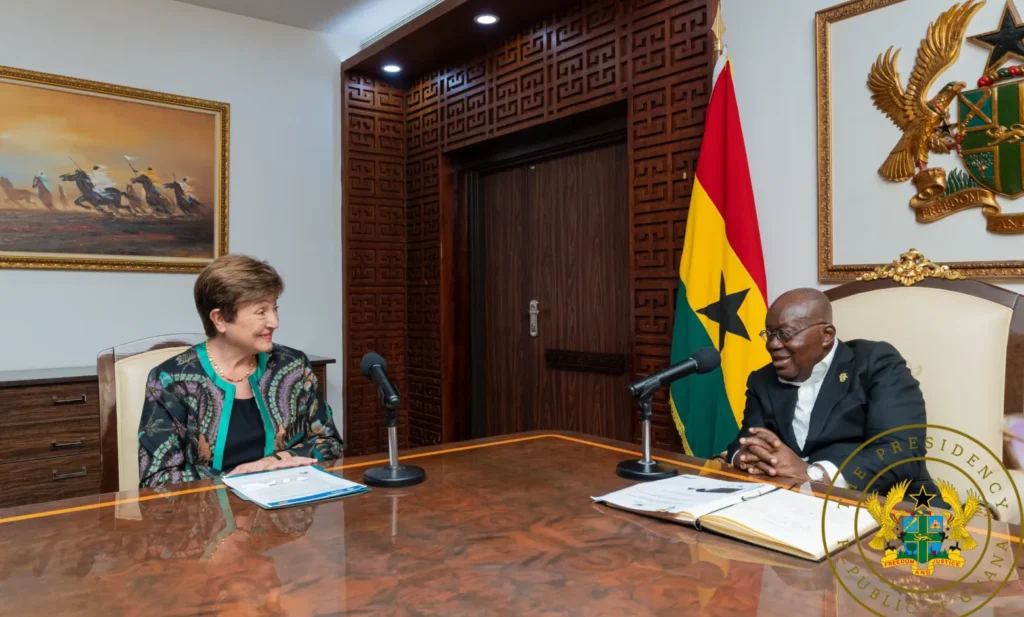
Public Response and Criticism
Despite the seemingly positive tone of Georgieva’s letter, the reality of Akufo-Addo’s legacy has been met with mixed reactions. Critics of his administration argue that his economic policies have failed to deliver the promised results, especially in areas like youth unemployment, inflation, and public debt.
The most vocal criticisms came during the 2024 general elections, where Akufo-Addo’s handpicked successor, Dr. Mahamudu Bawumia, was decisively defeated in a closely contested race by John Mahama, leader of the National Democratic Congress (NDC). The loss was seen by many as a rejection of Akufo-Addo’s stewardship and an indication of public disillusionment with the current state of the country’s economy.
The NDC and other political analysts have framed the electoral defeat as a direct consequence of Akufo-Addo’s policies, which they argue have led to rising living costs, economic instability, and diminished public trust. The failure to deliver on key promises and the growing dissatisfaction with the government’s management of Ghana’s economic crisis were cited as critical factors that led to the overwhelming rejection of Bawumia in favor of Mahama, who campaigned on promises of economic recovery and social development.
The Strained Relationship Between Politics and Governance
While Georgieva’s letter reflects an international view of Ghana’s political and economic trajectory, the internal sentiment within the country presents a more complex picture. The IMF’s praise for Akufo-Addo’s leadership contrasts with the frustration voiced by ordinary Ghanaians, who have borne the brunt of the economic challenges faced under his leadership.
In light of the 2024 election results, it is clear that a significant portion of the electorate sees the IMF’s praise of Akufo-Addo as disconnected from the realities on the ground. Critics argue that despite the IMF’s acknowledgment of reforms and economic stabilization efforts, the tangible benefits of these measures have not reached the average Ghanaian. Instead, rising inflation, unemployment, and increasing public debt have caused widespread hardship.
A Nation at a Crossroads
As Ghana moves forward under the leadership of John Mahama, the country finds itself at a crossroads. While international praise for Akufo-Addo’s leadership persists, the new government will need to address the economic and social challenges that led to the political shift in 2024. The electorate’s rejection of Akufo-Addo’s policies, embodied in Bawumia’s defeat, underscores the need for a shift in governance, with greater focus on economic recovery, job creation, and public welfare.
In conclusion, Kristalina Georgieva’s tribute to Akufo-Addo underscores the ongoing partnership between Ghana and the IMF. However, the mixed reception of this tribute within Ghana reflects the broader disconnect between political leadership and the lived experiences of the populace. Moving forward, Ghana’s future will depend on how effectively the incoming government can navigate these challenges and restore public confidence in its leadership.
